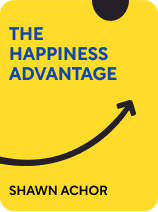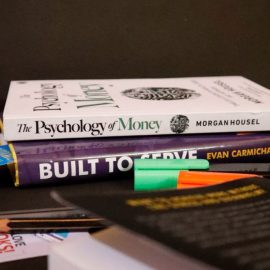

This article is an excerpt from the Shortform book guide to "The Happiness Advantage" by Shawn Achor. Shortform has the world's best summaries and analyses of books you should be reading.
Like this article? Sign up for a free trial here .
What is said about happiness in positive psychology? What can we learn from studying the science of happiness?
The field of psychology has historically been uninterested in studying happiness. Instead, it’s focused on unhappiness and mental health challenges. The relatively new field of positive psychology inverts the lens: Instead of focusing on why unhappy people are suffering, positive psychology asks why happy people are thriving.
Keep reading for more about happiness in positive psychology.
Happiness in Positive Psychology, Explained
The Happiness Advantage, published in 2010, is an introduction to a relatively new formula for success, based on an exploration of happiness in positive psychology and neuroscience. Under this paradigm, not only can you put your happiness first, but you can actually achieve greater success as a result.
Author Shawn Achor offers insight as a leading expert on the connection between happiness and performance. In addition to studying under several pioneers of positive psychology, Achor helped create and teach a popular Harvard course on happiness, he has written multiple books about happiness and success, and he founded a research and consulting firm that optimizes people’s achievement through understanding the science of happiness in positive psychology.
Psychology has historically focused on unhappiness, in an effort to help people with below-average happiness ascend to average happiness levels. While that is an important goal, it strives to reach average, instead of seeking above-average happiness. The relatively new field of positive psychology inverts the lens: Instead of focusing on why unhappy people are suffering, positive psychology asks why happy people are thriving.
First, let’s define happiness. One of the best known positive psychologists, Martin Seligman, breaks down happiness into three components. Understanding this is crucial to the study of happiness in positive psychology:
- Pleasure
- Engagement
- Meaning
Pursuing pleasure alone may make you happy, but incorporating engagement and personal meaning in that pursuit will maximize the benefits of happiness (we’ll go into more detail about those benefits later in this chapter). This sentiment is reflected in Aristotle’s term “eudaimonia,” which translates to “human flourishing.” Throughout the book and summary, “happiness” is used as a shorthand to encompass all of these elements.
These benefits raise the quality of your personal life, and they also optimize your success at work. Studies show that positive psychology can help managers increase customer satisfaction by 42 percent and CEOs increase their productivity by 15 percent.
(Shortform note: For more information about the nature of happiness in positive psychology, read our summary of The Happiness Hypothesis. And find out how small changes can have big impacts on your emotional well-being in our summary of The Happiness Project.)

———End of Preview———
Like what you just read? Read the rest of the world's best book summary and analysis of Shawn Achor's "The Happiness Advantage" at Shortform .
Here's what you'll find in our full The Happiness Advantage summary :
- How happiness isn’t the result of success, it’s the cause of it
- The benefits of happiness—from increased creativity to improved health
- Strategies for adopting a positive mindset and raising your happiness baseline






